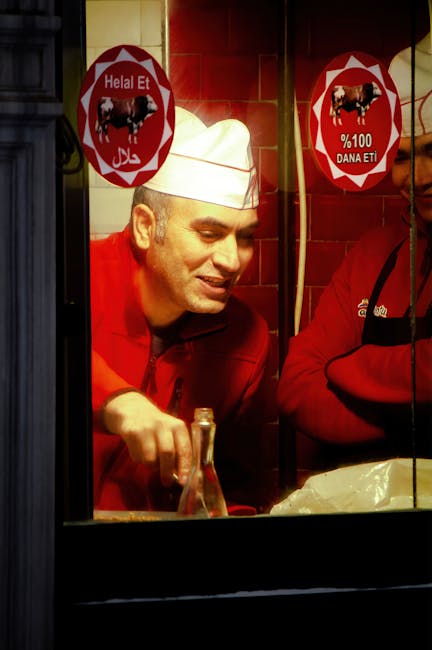Visa Process for Catering Workers in UAE
Understanding the UAE Catering Visa Landscape
First, the UAE offers several visa categories for hospitality workers. Specifically, catering staff typically fall under the skilled, semi-skilled, or service worker classifications. The Ministry of Human Resources and Emiratisation (MOHRE) oversees this process. Furthermore, the type of establishment significantly influences visa requirements. For example, five-star hotels have different criteria compared to independent catering companies. Therefore, identifying the correct category is your essential first step.
Key Requirements for Catering Worker Visas in UAE
Next, let’s examine the fundamental requirements. Both employers and employees must meet specific criteria for successful visa processing.
Employer Requirements and Obligations
The sponsoring company must hold a valid trade license. This license must include catering or hospitality activities. Additionally, the firm must meet MOHRE’s quota requirements for foreign workers. The company’s classification level also affects the process. Higher-rated companies enjoy faster processing and greater allowances.
Employee Eligibility Criteria
Prospective catering workers must meet these essential conditions:
- Minimum age of 18 years
- Relevant educational certificates or experience proofs
- Medical fitness certificate from approved UAE centers
- Clear criminal background check from home country
Step-by-Step UAE Catering Visa Application Process
Moreover, the application procedure involves multiple stages. Following them in sequence ensures efficiency and avoids unnecessary delays.
Step 1: Entry Permit Application
The employer initiates the process by applying for an entry permit. This permit allows the worker to legally enter the UAE for employment purposes. Required documents typically include:
- Passport copy of the employee
- Colored photographs
- Attested educational certificates
- Completed application form
Step 2: Medical Fitness Test
After arrival, the employee must undergo mandatory medical testing. This includes screening for infectious diseases. Approved government medical centers conduct these tests. Consequently, passing this test is mandatory for residency visa issuance.
Step 3: Emirates ID Registration
Simultaneously, the employee must apply for an Emirates ID. This identity card is essential for all UAE residents. The application process involves biometric data collection. Additionally, it requires submission of personal documents and photographs.
Step 4: Labor Contract and Residency Visa
Following successful medical testing, the employer submits the labor contract to MOHRE. Once approved, the employee’s passport receives the residency visa stamp. This stamp validates legal residence and employment in the UAE.
Essential Documents for UAE Catering Visa
Furthermore, proper documentation is critical for successful visa processing. Both parties must prepare these documents meticulously.
Employee Documentation Checklist
- Passport with minimum 6-month validity
- Passport-sized photographs with white background
- Attested educational certificates and training diplomas
- Previous experience certificates (if applicable)
- Medical fitness certificate from home country
- Police clearance certificate
Employer Documentation Requirements
- Company trade license copy
- MOHRE registration documents
- Quota approval for new employees
- Labor contract signed by both parties
Costs and Processing Time for Catering Visas
Additionally, understanding the financial and temporal aspects helps in proper planning. Costs vary based on company size and employee category.
Breakdown of Visa Costs
Typical expenses include:
- Entry permit fee: AED 200-500
- Medical testing fee: AED 250-350
- Emirates ID fee: AED 100-170
- Residency visa stamping fee: AED 500-1000
- Security deposit: AED 2000-3000 (refundable)
According to Dubai government services, these fees are subject to change.
Estimated Processing Timeline
The complete process typically takes 2-3 weeks from application to visa stamping. However, this duration may extend if additional verification is required. Therefore, planning for contingencies is advisable.
Common Challenges in UAE Catering Visa Processing
Meanwhile, applicants often encounter specific obstacles during the process. Awareness of these challenges enables proactive solutions.
Document Attestation Issues
Educational and personal documents require proper attestation. This process involves verification from multiple authorities. Initially, the home country’s education department must attest certificates. Subsequently, the UAE embassy in the home country and the Ministry of Foreign Affairs in UAE complete the chain.
Medical Test Failures
Certain medical conditions lead to visa rejection. These include infectious diseases like tuberculosis and hepatitis. Therefore, obtaining a preliminary health check before traveling is highly recommended.
Company Classification Problems
Companies with lower classification levels face stricter quotas and slower processing. Employers can improve their classification by complying with UAE labor laws and implementing best practices.
Recent Changes in UAE Visa Regulations
The UAE government continuously updates its immigration policies. Recent changes have significantly impacted the visa process for catering workers in UAE hospitality sector.
Introduction of New Entry Permits
New visa types like the Green Visa and Freelancer Visa offer alternative pathways. However, traditional employment visas remain the primary option for catering staff.
Digital Transformation Initiatives
Government services have moved predominantly online. Platforms like ICA Smart Services and MOHRE’s portal streamline application processes. Consequently, digital literacy has become increasingly important for applicants.
Tips for Successful Catering Visa Application
Finally, implementing these expert recommendations can enhance your application’s success rate significantly.
Pre-Application Preparation
- Verify all document requirements in advance
- Complete medical checks in home country
- Ensure passport has sufficient validity
- Research the employer’s reputation and classification
During the Application Process
- Maintain clear communication with the employer
- Keep copies of all submitted documents
- Track application status through official portals
- Respond promptly to any requests for additional information
Post-Approval Considerations
- Understand your rights and responsibilities under UAE labor law
- Keep your Emirates ID and residency visa always accessible
- Notify authorities of any change in employment status
- Renew documents well before expiration dates
Frequently Asked Questions
What is the typical duration of a catering worker visa in UAE?
Standard employment visas for catering staff are typically valid for two years. They are renewable upon expiration, subject to continued employment and meeting all requirements.
Can catering workers bring family members to UAE?
Yes, subject to meeting minimum salary requirements. Typically, workers earning AED 3,000-4,000 monthly can sponsor immediate family members. However, specific conditions apply.
What happens if my catering employment visa is rejected?
Visa rejections can occur due to various reasons. Common causes include document issues or medical concerns. You can usually reapply after addressing the rejection reasons.
Are there specific certifications required for catering workers in UAE?
While formal education requirements vary, food handling certificates are highly valued. Some establishments require specific training certifications depending on their specialization.
How long can I stay in UAE after my catering job ends?
After employment termination, you typically have 30 days to either change your status or leave the country. This grace period allows for transition to new employment or departure.
Conclusion
In conclusion, navigating the visa process for catering workers in UAE hospitality requires careful attention to detail and thorough preparation. This guide has provided comprehensive information about requirements, procedures, and potential challenges. Ultimately, success depends on proper documentation, adherence to regulations, and choosing reputable employers. The UAE’s hospitality sector offers excellent opportunities for qualified catering professionals. Therefore, taking the time to understand and properly complete the visa process is a valuable investment in your career future. For personalized assistance with your catering visa application, explore our Resources or Contact Us directly for expert guidance. Finally, consider booking an appointment with our immigration specialists to ensure your application succeeds.




